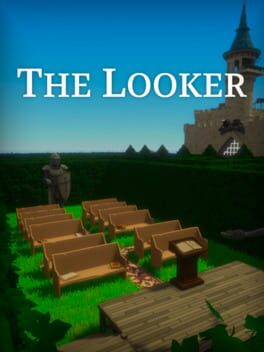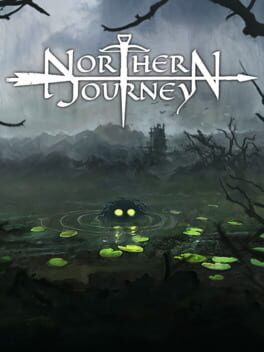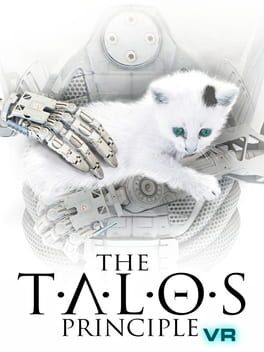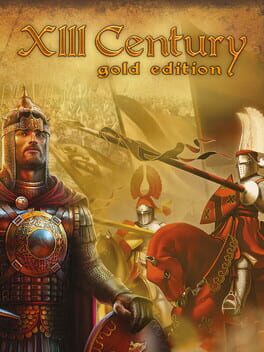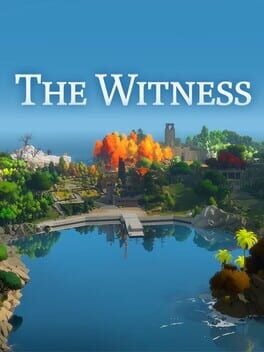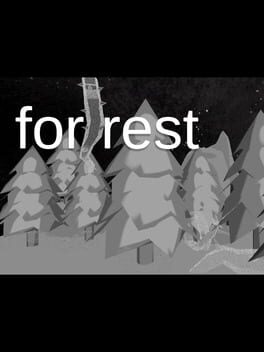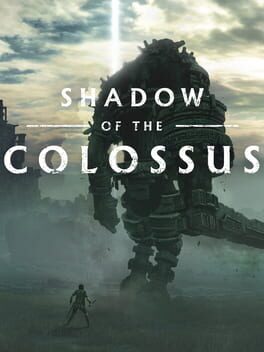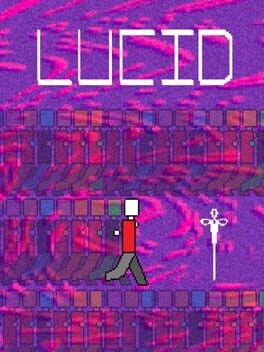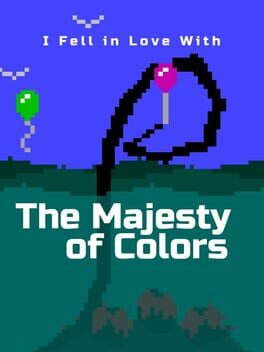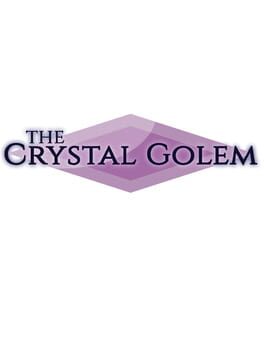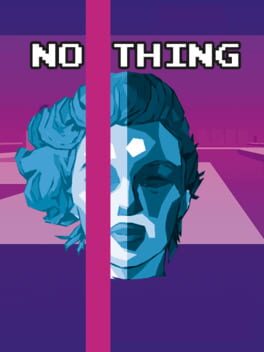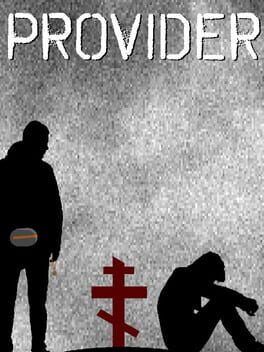AstrinSchmidt
2022
The creator obviously understood what made The Witness a success, as both the puzzles and the audio recordings demonstrate the design principles behind The Witness, except Subcreation Studio put a funny spin on most of them. The game never really gets difficult like The Witness does, though there is one noteworthy puzzle near the end.
Which brings me to my next point: A lot of people will say, "This is a must-play for anyone who has played The Witness", and while I do agree, I would also add that you should play The Witness before playing this game, as it clearly expects you to understand the things which The Witness teaches you coming into the game, both in order to solve the puzzles, and (more importantly) to understand the humour. I could be wrong, of course, but as someone who has beaten The Witness, I feel that my experience with The Looker would have been considerably lessened had I not had the full experience of beating the original game coming into this one.
Overall, this game captures the pretty graphics of The Witness, and even manages to replicate a bit of the puzzle-solving brilliance of The Witness whilst poking fun at the whole thing. Would recommend.
Which brings me to my next point: A lot of people will say, "This is a must-play for anyone who has played The Witness", and while I do agree, I would also add that you should play The Witness before playing this game, as it clearly expects you to understand the things which The Witness teaches you coming into the game, both in order to solve the puzzles, and (more importantly) to understand the humour. I could be wrong, of course, but as someone who has beaten The Witness, I feel that my experience with The Looker would have been considerably lessened had I not had the full experience of beating the original game coming into this one.
Overall, this game captures the pretty graphics of The Witness, and even manages to replicate a bit of the puzzle-solving brilliance of The Witness whilst poking fun at the whole thing. Would recommend.
2021
This is a highly atmospheric FPS/platformer with a focus on exploration, and it is the explorwtion aspect which I find the most interesting — there are health upgrades hidden around the levels like secrets in classic FPS games, and the weapon mechanics seem to have been crafted to facilitate and encourage exploration — ammunition pools start off very limited, which increases the value of ammo pickups found around the maps, but there are ammo capacity upgrades on each level, making sure that you get progressively more capable throughout the game, assuming that you bother finding them. The levels generally lack a clear direction, and end up relying on the player making their way through and exploring the stages to achieve their objectives, even if the way to achieve it was not initially clear
This sense of exploration also extends to the game's direction on a macro scale, as the game frequently switches gears both in terms of tone, taking on a more mysterious and unsettling tone in the beginning, and leaning towards comedy by the end, and gameplay, as there are not only frequent boss fights and level gimmicks, but also completely new sets of gameplay mechanics being introduced in certain levels. This made the game a joy to play through, as it never let any one aspect of it get stale or boring, and frequently switched things up.
Speaking of switching things up, the game's environments are mostly distinct, with the game's unique look being expressed through many varied environments; Whatever environments might look similar, the game's excellent soundtrack (coupled with the aforementioned gameplay gimmicks) will be sure to set each area apart in the player's mind. The game is quite frankly beautiful, and though I do wish that the game had baked-in lighting, so that I might see what that would look like, I cannot deny that the flat lighting does wonders to make the game feel more dreamlike.
This dreamlike atmosphere also extends to the story, with every character having exaggerated designs and motions, and having very expressive and memorable dialogue, whilst maintaining the surreal feel of the whole setting.
This last point brings me to my one real point of contention with the game — the story. While the atmosphere builds itself up as mysterious and surreal, the story itself is played quite straight, and there is no real poignancy or insight to be found — to be honest, I dare say that it kind of feels like the whole journey was pointless, a point which the game itself seems to lampshade. Whatever the case, the story is not all that important since the atmosphere and exploration are clearly the draw of the game, but the inclusion of philosophical discourse could have elevated this game to something I could truly recommend to everyone in my mind.
Finally, the FPS gameplay. The game features an interesting projectile system, where all of your shots arc in a realistic way. This makes aiming slightly more engaging than simply using a hitscan weapon, but frankly, I didn't find the actual FPS gameplay to be all that exciting — I spent most of the game circlestrafing whilst shooting enemies with my sling, because the stingy ammo limits made me hesitant to use the ammo at all. There is great enemy variety both in terms of appearance and attack patterns, but the sling was simply too versatile for me to have considered using other weapons unless I was surrounded, which is a shame.
Overall, if you think you'd be interested on the game based on the screenshots — go for it, it's actually more interesting to play than it might look. If the atmosphere of the game does not immediately appeal to you based on the screenshots, then you might not be the right audience for the game. I myself found the whole experience thoroughly enjoyable, but I was immediately interested in the game from seeing its page on Steam.
This sense of exploration also extends to the game's direction on a macro scale, as the game frequently switches gears both in terms of tone, taking on a more mysterious and unsettling tone in the beginning, and leaning towards comedy by the end, and gameplay, as there are not only frequent boss fights and level gimmicks, but also completely new sets of gameplay mechanics being introduced in certain levels. This made the game a joy to play through, as it never let any one aspect of it get stale or boring, and frequently switched things up.
Speaking of switching things up, the game's environments are mostly distinct, with the game's unique look being expressed through many varied environments; Whatever environments might look similar, the game's excellent soundtrack (coupled with the aforementioned gameplay gimmicks) will be sure to set each area apart in the player's mind. The game is quite frankly beautiful, and though I do wish that the game had baked-in lighting, so that I might see what that would look like, I cannot deny that the flat lighting does wonders to make the game feel more dreamlike.
This dreamlike atmosphere also extends to the story, with every character having exaggerated designs and motions, and having very expressive and memorable dialogue, whilst maintaining the surreal feel of the whole setting.
This last point brings me to my one real point of contention with the game — the story. While the atmosphere builds itself up as mysterious and surreal, the story itself is played quite straight, and there is no real poignancy or insight to be found — to be honest, I dare say that it kind of feels like the whole journey was pointless, a point which the game itself seems to lampshade. Whatever the case, the story is not all that important since the atmosphere and exploration are clearly the draw of the game, but the inclusion of philosophical discourse could have elevated this game to something I could truly recommend to everyone in my mind.
Finally, the FPS gameplay. The game features an interesting projectile system, where all of your shots arc in a realistic way. This makes aiming slightly more engaging than simply using a hitscan weapon, but frankly, I didn't find the actual FPS gameplay to be all that exciting — I spent most of the game circlestrafing whilst shooting enemies with my sling, because the stingy ammo limits made me hesitant to use the ammo at all. There is great enemy variety both in terms of appearance and attack patterns, but the sling was simply too versatile for me to have considered using other weapons unless I was surrounded, which is a shame.
Overall, if you think you'd be interested on the game based on the screenshots — go for it, it's actually more interesting to play than it might look. If the atmosphere of the game does not immediately appeal to you based on the screenshots, then you might not be the right audience for the game. I myself found the whole experience thoroughly enjoyable, but I was immediately interested in the game from seeing its page on Steam.
This game has interesting puzzles (particularly in Road to Gehenna), some genuinely funny writing (again, mostly in Road to Gehenna), and potent philosophical themes and musings. Essentially, the game discusses the end of the world, immortality through memories, the nature of AI and consciousness, and what it all means.
All of this is wrapped up in a package of neat puzzles solved entirely in a 3D space from a first-person perspective, relying on interacting with the environment through perspective puzzles with lasers, basic topology-based puzzles with jammers, a time travel/parallel universe gimmick, and a bunch of other stuff. Unfortunately, most of the puzzles in the base game are mindlessly easy (coming from Stephen's Sausage Roll and The Witness, anyway) but Road to Gehenna provides some challenging and truly ingenious puzzles. Overall, the puzzle-solving is fun, and occasionally truly challenging (hence, rewarding).
So yeah, I would recommend this game to people who like waxing philosophical (like myself) and simple puzzles. The graphics and sound are pretty, and there is also some exploration with finding hidden/hard-to-reach stars, but it's not particularly interesting.
The game deserves 4 stars just for the story and presentation, and some of the better puzzles push it up to 4.5 stars for me. Would have been 5 stares if there weren't so many braindead easy puzzles.
All of this is wrapped up in a package of neat puzzles solved entirely in a 3D space from a first-person perspective, relying on interacting with the environment through perspective puzzles with lasers, basic topology-based puzzles with jammers, a time travel/parallel universe gimmick, and a bunch of other stuff. Unfortunately, most of the puzzles in the base game are mindlessly easy (coming from Stephen's Sausage Roll and The Witness, anyway) but Road to Gehenna provides some challenging and truly ingenious puzzles. Overall, the puzzle-solving is fun, and occasionally truly challenging (hence, rewarding).
So yeah, I would recommend this game to people who like waxing philosophical (like myself) and simple puzzles. The graphics and sound are pretty, and there is also some exploration with finding hidden/hard-to-reach stars, but it's not particularly interesting.
The game deserves 4 stars just for the story and presentation, and some of the better puzzles push it up to 4.5 stars for me. Would have been 5 stares if there weren't so many braindead easy puzzles.
2009
A solid Souls game, but it's definitely missing a lot of what made the next entry in the series so iconic -- the story is fairly simple (and the game has lore dumps to make sure you understand everything), the bosses are mostly complete jokes, the levels are not interconnected, and are generally simpler than Dark Souls' levels (still way better than DSII SotFS). The poison swamp is the worst that FromSoft have ever made, to my knowledge (haven't played Elden Ring, though).
Overall, it's a good game, but it is nothing special. We should be thankful that the series was able to evolve past this title.
Overall, it's a good game, but it is nothing special. We should be thankful that the series was able to evolve past this title.
2015
The tight and fast-paced combat in this game is like a dream come true, with a focus on aggressive play, precise step-dodges and parrying. It fits the way I play the Souls games perfectly, and it kind of makes it hard for me to go back to something like Dark Souls II, with its slow, methodical gameplay.
The visuals in this game are simply stunning, with the gruesome enemy designs, glistening blood splatters, and frankly disgusting guts and fur covering all of the enemies, amidst beautiful gothic-looking environments. It's hard to believe that this came out only a year after Dark Souls II, since the graphics truly make the games seem like they are an entire console generation apart.
I'm not one for lore, as I prefer to let the gameplay and the player's own experience tell the story (something which the first Dark Souls absolutely excelled at), but this game is surprisingly comprehensible even without having to read every item description and look up VaatiVidya videos. The setting seems fresh and unique among video games, and the environments are a joy to explore, with the graphics assisted by the excellent level design rivaling the best of FromSoft's work (still pretty linear, though).
I am not a fan of the Souls games' insistence on having little to no music outside of bossfights, and having large, 'epic' orchestral tracks play during bossfights, but I have to admit that there were actually a few 'epic' tracks which I actually enioyed in this game (most notably the 'final' boss theme), so I think that this game might have the best OST in a FromSoft game since King's Field IV.
With that said, no game is perfect (especially when it comes to FromSoftgames), and I do have some pretty major gripes with the game.
Firstly, the framerate. Not only is the game locked to 30FPS, but it hardly ever reaches that framerate outside of bossfights in small arenas. The horrible framerate on the original PS4 really does the graphics an injustice, and I honestly don't understand how Sony even let FromSoft release such a poorly-performing exclusive.
Secondly, the blood vial system. I don't understand why FromSoft regressed from the Estus system in Dark Souls, to a system where you have to grind for medkits after you use all of them up (be it, grinding for money to buy them with, or grinding for them directly). It's like they looked at Dark Souls II, decided that the lifegems were way better than Estus, and then balanced them by only letting you hold twenty of them at any given time. It's baffling. Fortunately I was able to discover a blood echo dupe on YouTube to alleviate the grinding, and later on, basic fodder in chalice dungeons dropped enough blood echoes to let me buy 800 blood vials and fill out my stash, rendering the effect of their finite nature completely null. Which begs the question, what is the point of making a healing system that only becomes enjoyable when you've completely surpassed its limits?
Speaking of chalice dungeons, they suck. You have to grind randomly-generated dungeons to get good blood gems for your weapons and basically break the game (unless you have PS+, where you can just get all the most overpowered stuff with little to no effort; I do not have PS+), and you have to get through the 'main' chalice dungeons to fight some of the hardest (read: cheap and frustrating) bosses in the game, with a unique boss at the end. Now, I don't want to go on a huge rant here, so let me just say that nothing about the chalice dungeons was genuinely enjoyable for me, and I honestly feel like my experience with the game would have been better if I had not done them. Still, the fact that I had to consciously choose to try and beat all the bosses (as I do in every other Souls game) to complete this otherwise completely optional 'challenge' makes it so that I can't really hold it against the game. I guess I'll just say that it would have been better if there was no achievement for beating the Queen of Yharnam, because then I wouldn't have had to spend hours running through copy-pasted dungeons and fighting bosses with tons of HP and one-hit kill attacks (defiled chalice can suck my Kos parasite).
Speaking of Kos, the DLC was the overall best part of the game, with some nice-looking environments and interesting bosses (albeit easy; everyone except for Laurence took me 1-3 tries, and Laurence took around ten because of he aforementioned huge HP pool and OHKOs). It presented a nice story with a surprisingly happy ending, and was overall a great time.
So, at the end of the day, this game is not perfect, but it probably has fewer problems than every other FromSoft game (maybe except for King's Field IV), and the successful parts of it are overwhelmingly strong, making anything less than 5 stars feel like an injustice to the masterful craftsmanship displayed in most aspects of the game, particularly combat and visual design. This game is a must-play for any FromSoft fan, as well as anyone who likes having a win button, coincidentally bound to L2. Hell, if you like ARPGs where you grind for an hour to get a 1% boost to damage, you'll probably like the chalice dungeons!
The visuals in this game are simply stunning, with the gruesome enemy designs, glistening blood splatters, and frankly disgusting guts and fur covering all of the enemies, amidst beautiful gothic-looking environments. It's hard to believe that this came out only a year after Dark Souls II, since the graphics truly make the games seem like they are an entire console generation apart.
I'm not one for lore, as I prefer to let the gameplay and the player's own experience tell the story (something which the first Dark Souls absolutely excelled at), but this game is surprisingly comprehensible even without having to read every item description and look up VaatiVidya videos. The setting seems fresh and unique among video games, and the environments are a joy to explore, with the graphics assisted by the excellent level design rivaling the best of FromSoft's work (still pretty linear, though).
I am not a fan of the Souls games' insistence on having little to no music outside of bossfights, and having large, 'epic' orchestral tracks play during bossfights, but I have to admit that there were actually a few 'epic' tracks which I actually enioyed in this game (most notably the 'final' boss theme), so I think that this game might have the best OST in a FromSoft game since King's Field IV.
With that said, no game is perfect (especially when it comes to FromSoftgames), and I do have some pretty major gripes with the game.
Firstly, the framerate. Not only is the game locked to 30FPS, but it hardly ever reaches that framerate outside of bossfights in small arenas. The horrible framerate on the original PS4 really does the graphics an injustice, and I honestly don't understand how Sony even let FromSoft release such a poorly-performing exclusive.
Secondly, the blood vial system. I don't understand why FromSoft regressed from the Estus system in Dark Souls, to a system where you have to grind for medkits after you use all of them up (be it, grinding for money to buy them with, or grinding for them directly). It's like they looked at Dark Souls II, decided that the lifegems were way better than Estus, and then balanced them by only letting you hold twenty of them at any given time. It's baffling. Fortunately I was able to discover a blood echo dupe on YouTube to alleviate the grinding, and later on, basic fodder in chalice dungeons dropped enough blood echoes to let me buy 800 blood vials and fill out my stash, rendering the effect of their finite nature completely null. Which begs the question, what is the point of making a healing system that only becomes enjoyable when you've completely surpassed its limits?
Speaking of chalice dungeons, they suck. You have to grind randomly-generated dungeons to get good blood gems for your weapons and basically break the game (unless you have PS+, where you can just get all the most overpowered stuff with little to no effort; I do not have PS+), and you have to get through the 'main' chalice dungeons to fight some of the hardest (read: cheap and frustrating) bosses in the game, with a unique boss at the end. Now, I don't want to go on a huge rant here, so let me just say that nothing about the chalice dungeons was genuinely enjoyable for me, and I honestly feel like my experience with the game would have been better if I had not done them. Still, the fact that I had to consciously choose to try and beat all the bosses (as I do in every other Souls game) to complete this otherwise completely optional 'challenge' makes it so that I can't really hold it against the game. I guess I'll just say that it would have been better if there was no achievement for beating the Queen of Yharnam, because then I wouldn't have had to spend hours running through copy-pasted dungeons and fighting bosses with tons of HP and one-hit kill attacks (defiled chalice can suck my Kos parasite).
Speaking of Kos, the DLC was the overall best part of the game, with some nice-looking environments and interesting bosses (albeit easy; everyone except for Laurence took me 1-3 tries, and Laurence took around ten because of he aforementioned huge HP pool and OHKOs). It presented a nice story with a surprisingly happy ending, and was overall a great time.
So, at the end of the day, this game is not perfect, but it probably has fewer problems than every other FromSoft game (maybe except for King's Field IV), and the successful parts of it are overwhelmingly strong, making anything less than 5 stars feel like an injustice to the masterful craftsmanship displayed in most aspects of the game, particularly combat and visual design. This game is a must-play for any FromSoft fan, as well as anyone who likes having a win button, coincidentally bound to L2. Hell, if you like ARPGs where you grind for an hour to get a 1% boost to damage, you'll probably like the chalice dungeons!
2016
Let's get this out of the way: this game is about line puzzles. All you really get with the game are pretty environments, and line puzzles. Do not let the store page for the game mislead you into believing that there is something more to the whole package -- it's just exploration and line puzzles with some "deep-sounding" quotes.
With that out of the way, I can say that the puzzles were fun and challenging, never failing to engage me (I played this game for 16 hours straight on my first sitting) and the graphics are really pretty. Without spoiling anything, the environmental design is rather phenomenal. I just wish that there was some kind of meaning or reason for it, but the game doesn't do much to justify its existence.
Overall, there isn't really much to say. Get the game if you think you'd be interested in solving puzzles relying on observing your surroundings, comprehension skills, and pattern recognition (to see the solutions).
With that out of the way, I can say that the puzzles were fun and challenging, never failing to engage me (I played this game for 16 hours straight on my first sitting) and the graphics are really pretty. Without spoiling anything, the environmental design is rather phenomenal. I just wish that there was some kind of meaning or reason for it, but the game doesn't do much to justify its existence.
Overall, there isn't really much to say. Get the game if you think you'd be interested in solving puzzles relying on observing your surroundings, comprehension skills, and pattern recognition (to see the solutions).
2021
2012
This game suffers from trying to say too much with too little. It takes complex concepts and dilemmas and condenses them into abstract, minimalist "parables." I think a good test would be to let someone play one o the parables without the intro text, and then ask them what they think it was about. I expect that they would not be able to tell you most of the time, as the game relies upon the "This parable is of..." text to help the player understand any of its messages. I think there's a problem with that, since it means that the actual contents do not offer enough answers, or attempts at stimulating thought, for the player to even be able to work backwards to understand what the question was.
And the game seems keenly aware of this -- there's a text scroll at the beginning, which warns you that understanding the message of the game could take time. And while that is not, on its own, a problem, I believe that the abstract and minimalist nature of the presentation harms whatever potential the game may have had regarding philosophical ideas, since providing a dense, meaningful exploration of the topics presented with this approach would simply be impossible. Case in point, the levels generally take around a minute to complete, and mostly consist of reskins of platforms and instant-death enemies. The creator seriously restricts his own ability to put meaning into the game, and relies on abstraction to carry the experience. Ironically, I believe that the "Parable of Abstraction" is a good microcosm for the entire game, featuring platforms, clowns shooting projectiles at you, and text which says "my message is nothing". So many mechanical parts making up the game, with little room left for thought-provoking ideas to be presented.
With that said, I have to give the game credit for its style and music -- it's certainly enjoyable on the aesthetic front.
All in all, this game would have been 5 stars, but the creator misspelled 'Nietzsche' at the end; While this does increase the relatability of the game, and the author, I shall be forced to reduce the rating of the game down to just 3 stars :p
And the game seems keenly aware of this -- there's a text scroll at the beginning, which warns you that understanding the message of the game could take time. And while that is not, on its own, a problem, I believe that the abstract and minimalist nature of the presentation harms whatever potential the game may have had regarding philosophical ideas, since providing a dense, meaningful exploration of the topics presented with this approach would simply be impossible. Case in point, the levels generally take around a minute to complete, and mostly consist of reskins of platforms and instant-death enemies. The creator seriously restricts his own ability to put meaning into the game, and relies on abstraction to carry the experience. Ironically, I believe that the "Parable of Abstraction" is a good microcosm for the entire game, featuring platforms, clowns shooting projectiles at you, and text which says "my message is nothing". So many mechanical parts making up the game, with little room left for thought-provoking ideas to be presented.
With that said, I have to give the game credit for its style and music -- it's certainly enjoyable on the aesthetic front.
All in all, this game would have been 5 stars, but the creator misspelled 'Nietzsche' at the end; While this does increase the relatability of the game, and the author, I shall be forced to reduce the rating of the game down to just 3 stars :p
2020
You slowly walk through a corridor and use very slow attacks to deplete the excessively fat health bars of enemies. Honestly, saying that this game is inspired by Dark Souls sounds like an overstatement -- it feels like a King's Field clone, but with slower movement, no level design, no immersion (your camera clips through walls everywhere, and it is obvious that the entire games exists in "the void"), no inventory, no nothing. It's also easy, so that's more false advertising for you. I hope that the developer learnt something through making this game, because as a game, I really do not see any reason for anyone to bother playing this.
This is the part where I'd give a special shout-out tot he music, but it just sounds like a collection of rejected tracks from a PS1 King's Field game.
Edit: turns out, there's a "fast mode", in case you don't feel like spending minutes at a time walking between encounters. Should have put that into the main menu or something.
This is the part where I'd give a special shout-out tot he music, but it just sounds like a collection of rejected tracks from a PS1 King's Field game.
Edit: turns out, there's a "fast mode", in case you don't feel like spending minutes at a time walking between encounters. Should have put that into the main menu or something.
2016
The game tells a loose narrative of a totalitarian regime, where a simple office clerk overcomes inner turmoil and reflects upon his life, as he makes his way across his memories to deliver a message to the Queen of Ice.
The game utilises abstract imagery and loose, train-of-thought narration to immerse the player in the thoughts of the clerk, which seem to mostly be concerned with recollections of and reflections upon his past, as well as the world which he is surrounded in. This is, in my opinion, handled quite well, as the synthwave soundtrack and simplistic gameplay make it easy to let your imagination run wild and get lost in the future of 1994.
The aforementioned gameplay consists of the clerk automatically running forward, with the player able to turn the clerk in ninety-degree increments. The clerk gets faster with every turn, and as you run laps around the twisting layouts of the levels, the game can get quite challenging (particularly level 7).
The gameplay serves two main functions: firstly, it subtly showcases the main themes of the game, about how the clerk is running in circles, in his reflections and thought processes. Secondly, the difficulty helps define tension, and let the player know how urgent the task of delivering the message is, and with what difficulty this task is accomplished, without having to put the player through needless exposition. Indeed, the clerk's ever-increasing running speed essentially defines the game, both from a narrative, as well as a gameplay perspective.
The character of the "simplest office clerk" is generally rather loosely defined, with descriptions of his apparent TV addiction and lost love being scattered across the narration. Hence, the main defining thing about the clerk is his ever-increasing speed and urgency, as he tries to win his "inner fight" and deliver the message to the Queen of Ice, which is essentially the focus of his existence.
Overall, this game is much larger than the sum of its parts, and I feel like its presentation and overall composition inspire both awe and creativity. I was not expecting to get so engrossed and so touched by such a short, simple piece, but I am happy to have been so pleasantly surprised. Considering how short and how cheap the game is (as well as the fact that you probably got it in the Bundle for Ukraine on itch.io), I would certainly recommend that everyone gives this game a shot.
The game utilises abstract imagery and loose, train-of-thought narration to immerse the player in the thoughts of the clerk, which seem to mostly be concerned with recollections of and reflections upon his past, as well as the world which he is surrounded in. This is, in my opinion, handled quite well, as the synthwave soundtrack and simplistic gameplay make it easy to let your imagination run wild and get lost in the future of 1994.
The aforementioned gameplay consists of the clerk automatically running forward, with the player able to turn the clerk in ninety-degree increments. The clerk gets faster with every turn, and as you run laps around the twisting layouts of the levels, the game can get quite challenging (particularly level 7).
The gameplay serves two main functions: firstly, it subtly showcases the main themes of the game, about how the clerk is running in circles, in his reflections and thought processes. Secondly, the difficulty helps define tension, and let the player know how urgent the task of delivering the message is, and with what difficulty this task is accomplished, without having to put the player through needless exposition. Indeed, the clerk's ever-increasing running speed essentially defines the game, both from a narrative, as well as a gameplay perspective.
The character of the "simplest office clerk" is generally rather loosely defined, with descriptions of his apparent TV addiction and lost love being scattered across the narration. Hence, the main defining thing about the clerk is his ever-increasing speed and urgency, as he tries to win his "inner fight" and deliver the message to the Queen of Ice, which is essentially the focus of his existence.
Overall, this game is much larger than the sum of its parts, and I feel like its presentation and overall composition inspire both awe and creativity. I was not expecting to get so engrossed and so touched by such a short, simple piece, but I am happy to have been so pleasantly surprised. Considering how short and how cheap the game is (as well as the fact that you probably got it in the Bundle for Ukraine on itch.io), I would certainly recommend that everyone gives this game a shot.
2021
Interesting premise, but the gameplay is pretty easy and dull. The small stories provided by the lost souls are fairly simple, and not particularly interesting or engaging. My inventory space was filled up, and a quest item seemed to disappear. In my frustration, I moved around ten items from my storage into my (already full) backpack, causing them to disappear, too. I'm not going to restart the game to get to the end, so I can only speak for about the first half of the game. Nevertheless, I do believe that I've got enough of an idea of what the game is like to say that it's just not very interesting.
